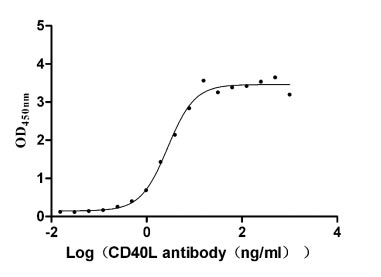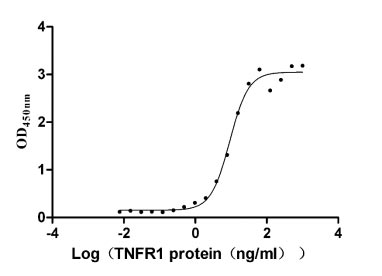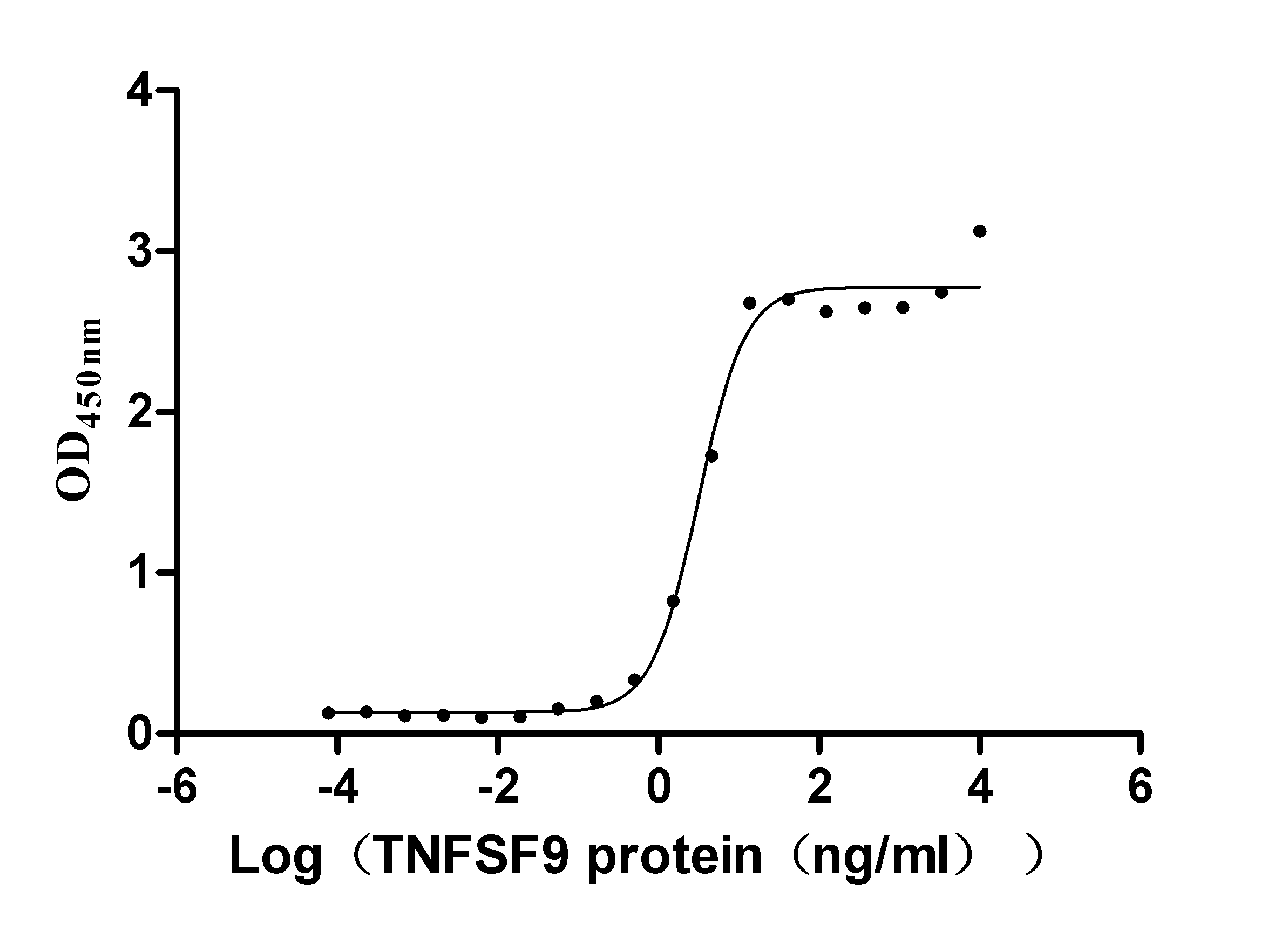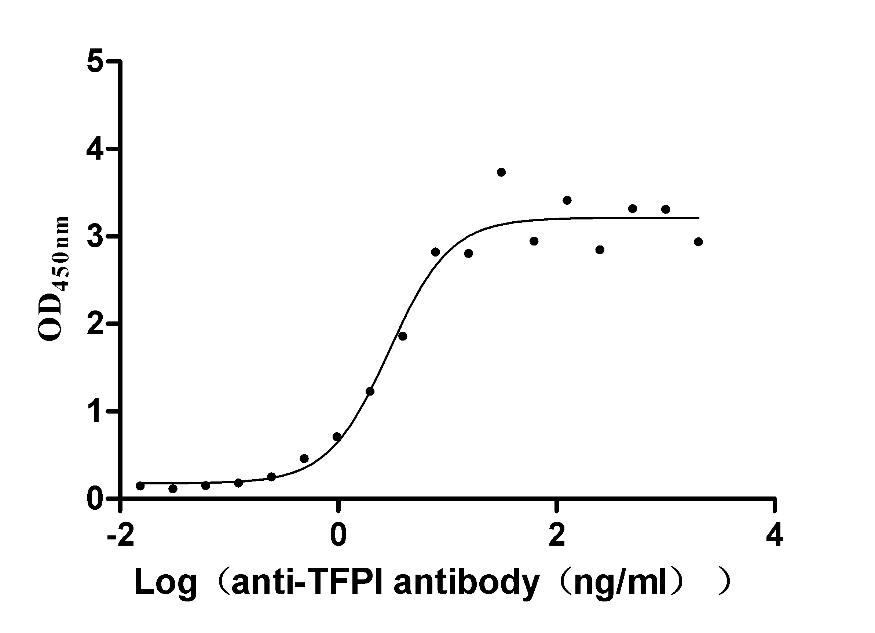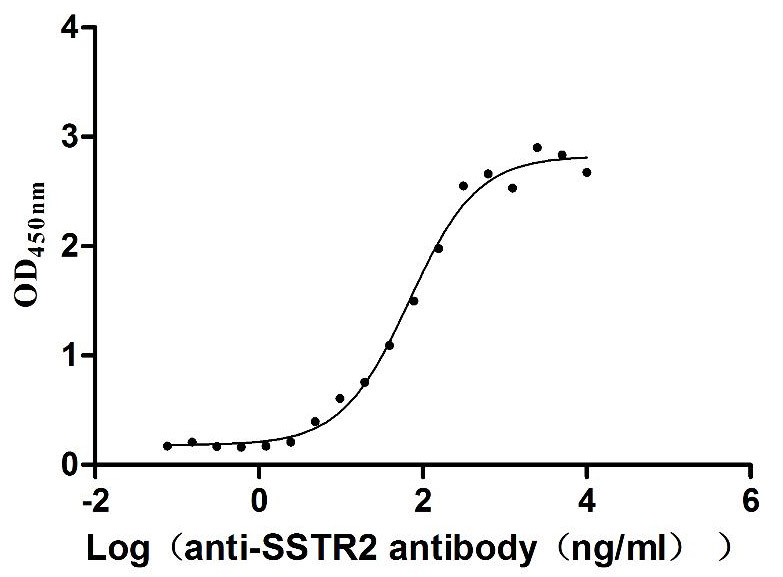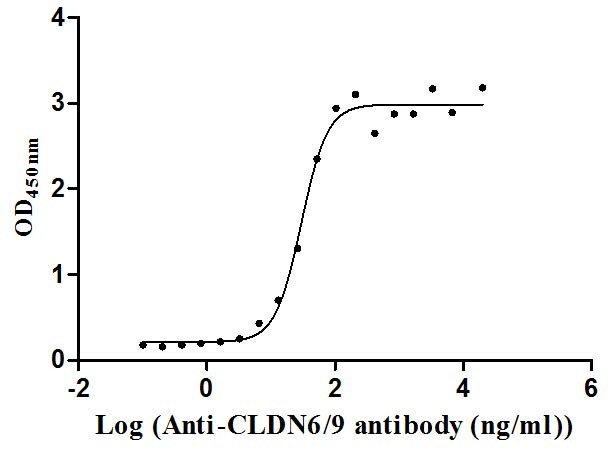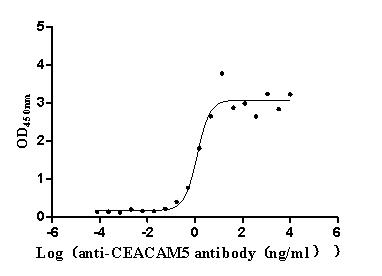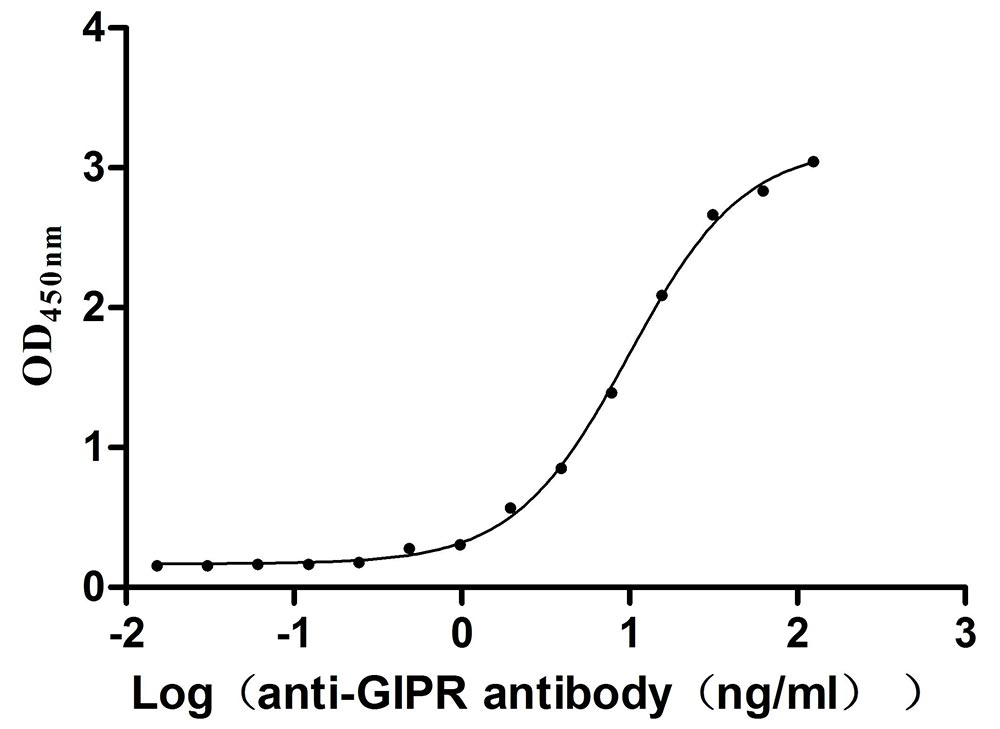Recombinant Human Glycogen phosphorylase, muscle form (PYGM)
-
中文名稱:
-
貨號:CSB-YP019123HU(A4)
-
規格:
-
來源:Yeast
-
其他:
-
中文名稱:
-
貨號:CSB-EP019123HU(A4)
-
規格:
-
來源:E.coli
-
其他:
-
中文名稱:
-
貨號:CSB-EP019123HU(A4)-B
-
規格:
-
來源:E.coli
-
共軛:Avi-tag Biotinylated
E. coli biotin ligase (BirA) is highly specific in covalently attaching biotin to the 15 amino acid AviTag peptide. This recombinant protein was biotinylated in vivo by AviTag-BirA technology, which method is BriA catalyzes amide linkage between the biotin and the specific lysine of the AviTag.
-
其他:
-
中文名稱:
-
貨號:CSB-BP019123HU(A4)
-
規格:
-
來源:Baculovirus
-
其他:
-
中文名稱:
-
貨號:CSB-MP019123HU(A4)
-
規格:
-
來源:Mammalian cell
-
其他:
產品詳情
-
純度:>85% (SDS-PAGE)
-
基因名:
-
Uniprot No.:
-
別名:Glycogen phosphorylase, muscle form; EC 2.4.1.1; Myophosphorylase; PYGM
-
種屬:Homo sapiens (Human)
-
蛋白標簽:Tag?type?will?be?determined?during?the?manufacturing?process.
The tag type will be determined during production process. If you have specified tag type, please tell us and we will develop the specified tag preferentially. -
產品提供形式:Liquid or Lyophilized powder
Note: We will preferentially ship the format that we have in stock, however, if you have any special requirement for the format, please remark your requirement when placing the order, we will prepare according to your demand. -
復溶:We recommend that this vial be briefly centrifuged prior to opening to bring the contents to the bottom. Please reconstitute protein in deionized sterile water to a concentration of 0.1-1.0 mg/mL.We recommend to add 5-50% of glycerol (final concentration) and aliquot for long-term storage at -20℃/-80℃. Our default final concentration of glycerol is 50%. Customers could use it as reference.
-
儲存條件:Store at -20°C/-80°C upon receipt, aliquoting is necessary for mutiple use. Avoid repeated freeze-thaw cycles.
-
保質期:The shelf life is related to many factors, storage state, buffer ingredients, storage temperature and the stability of the protein itself.
Generally, the shelf life of liquid form is 6 months at -20°C/-80°C. The shelf life of lyophilized form is 12 months at -20°C/-80°C. -
貨期:Delivery time may differ from different purchasing way or location, please kindly consult your local distributors for specific delivery time.Note: All of our proteins are default shipped with normal blue ice packs, if you request to ship with dry ice, please communicate with us in advance and extra fees will be charged.
-
注意事項:Repeated freezing and thawing is not recommended. Store working aliquots at 4°C for up to one week.
-
Datasheet :Please contact us to get it.
相關產品
靶點詳情
-
功能:Allosteric enzyme that catalyzes the rate-limiting step in glycogen catabolism, the phosphorolytic cleavage of glycogen to produce glucose-1-phosphate, and plays a central role in maintaining cellular and organismal glucose homeostasis.
-
基因功能參考文獻:
- Results show that PYGM and RAC1 are altered in the dorsolateral prefrontal cortex in chronic schizophrenia and are controlled by NMDA signaling in the rodent cortex and cortical astrocytes suggesting an altered NMDA-dependent glycogenolysis in astrocytes in schizophrenia. PMID: 27156240
- This report expands the phenotype and genotype of McArdle disease and suggests that PYGM mutations should be looked for in patients with very late-onset myopathy with no previous history of exercise intolerance PMID: 28120463
- Because the NMD mechanism does not seem to operate in nonspecific cells, PBMCs were more suitable than muscle biopsies for detecting the pathogenicity of some PYGM mutations, notably the silent mutation whose effect in the splicing of intron 6 was unnoticed in previous muscle transcriptomic studies PMID: 26913921
- Variations in AMPD1, CPT2, and PGYM genes are not associated with the onset, susceptibility, or severity of chronic fatigue syndrome. PMID: 27525900
- update of the reported mutations and polymorphisms in the PYGM gene [review] PMID: 25914343
- study found that T lymphocytes expressed myophosphorylase in healthy donors, but expression was significantly lower in McArdle patients (p<0.001); PYGM mRNA levels were also lower in white blood cells from McArdle patients PMID: 25240406
- biological significance of this PKCtheta;/alphaPIX/Rac 1 GTPase/PYGM signaling pathway seems to be the control of different cellular responses such as migration and proliferation PMID: 25694429
- 5 different PYGM mutations were found in 8 Brazilian families: 4 previously described (p.R50X, p.T692kfs30, p.K609K, and p.G455R), and one, pI513V, a novel heterozygous mutation. PMID: 23653251
- a novel mutation, in the PYGM gene c.632delG, in three unrelated families of Jewish descent originating from the Caucasus region PMID: 22608882
- a new role for Rac1 in cell signaling, showing that this GTPase triggers T-cell proliferation upon IL-2 stimulation by associating with PYGM and modulating its enzymatic activity. PMID: 22337875
- No genotype-phenotype correlation is evident and that no gender effect is related to the phenotype of McArdle's disease (PYGM gene) in a cohort of 123 European McArdle's disease patients. PMID: 21802952
- The current data add to the list of pathogenic mutations in the PYGM gene associated with McArdle disease PMID: 21880526
- This study demonistrated that PYGM mutation in McArdle disease. PMID: 21658951
- indicate that in both patients' and controls' cell cultures, unlike in skeletal muscle tissue, most of the protein and GP activities result from the expression of brain GP and liver GP genes PMID: 20957198
- McArdle disease may be caused by a R269X nonsense mutation in this gene. PMID: 11749054
- two new mutations in the myophosphorylase gene in Italian patients with McArdle's disease; both were compound heterozygous, with the common mutation at codon 49 (R49X) on the other allele PMID: 12031624
- molecular genetic study of McArdle's disease in Yemenite-Jewish patients expands the already remarkable genetic heterogeneity of McArdle's disease and suggests the existence of ethnic or private mutations within this group. PMID: 12398832
- In Mcardle's disease (deficiency of this enzyme) efferent muscle sympathetic nerve activity (MSNA) is attenuated. PMID: 12640006
- the muscle subtype of glycogen phosphorylase mRNA level is up-regulated in preeclampsia in placenta PMID: 14662163
- A new autosomal dominant gene mutation in McArdle disease. PMID: 15979037
- We report a Spanish family with muscle glycogen phosphorylase (PYGM) deficiency (McArdle's disease) harbouring a novel compound genotype (A659D/L586P). PMID: 16154688
- muscle isoform of human glycogen phosphorylase has structural differences that are consistent with the long-known kinetic differences between the liver and muscle enzymes PMID: 16523484
- 19 novel mutations within the PYGM gene are associated with McArdle disease. PMID: 16786513
- findings further demonstrate molecular heterogeneity of myophosphorylase deficiency, absence of genotype-phenotype correlation and expand the already crowded map of mutations within the myophosphorylase gene PMID: 17324573
- The study further extends the genetic heterogeneity of myophosphorylase gene mutations showing no mutational hotspot and no genotype-phenotype correlation. PMID: 17404776
- This unique case of a false negative myophosphorylase histochemical reaction is apparently related to sepsis. PMID: 17719780
- Glycogenosis type V is an autosomal recessive metabolic disorder caused by a deficiency of the muscle isoform of glycogen phosphorylase (myophosphorylase, PYGM. [REVIEW] PMID: 17915571
- To investigate if nonsense mediated decay affects the levels of transcripts containing PYGM mutations, 28 Spanish patients with McArdle disease, harboring 17 different mutations with premature termination codons in 77% of their alleles, were studied. PMID: 17994553
- Defect in glycogen breakdown is due to mutations of the gene for myophosphorylase in McArdle disease (gycogenosis type V). PMID: 18808785
- Different PYGM mutations and mutant molecular mechanisms are described in patients with McArdle disease. PMID: 19251976
- study of two patients with atypical McArdle disease who carried common mutations on one allele (R50X and G205S), and novel splice mutations in introns 3 [IVS3-26A>G (c.425-26A>G)] and 5 [IVS5-601G>A (c.856-601G>A)] on the other allele PMID: 19433441
- Nine novel mutations of PYGM were identified in patients with McArdle disease. PMID: 19472443
顯示更多
收起更多
-
相關疾病:Glycogen storage disease 5 (GSD5)
-
蛋白家族:Glycogen phosphorylase family
-
數據庫鏈接:
Most popular with customers
-
Recombinant Human CD40 ligand (CD40LG), partial (Active)
Express system: Mammalian cell
Species: Homo sapiens (Human)
-
Recombinant Human Tumor necrosis factor receptor superfamily member 1A (TNFRSF1A), partial (Active)
Express system: Mammalian cell
Species: Homo sapiens (Human)
-
Recombinant Human Tumor necrosis factor ligand superfamily member 9 (TNFSF9), partial (Active)
Express system: Mammalian cell
Species: Homo sapiens (Human)
-
Recombinant Rabbit Tissue factor pathway inhibitor (TFPI) (Active)
Express system: Mammalian cell
Species: Oryctolagus cuniculus (Rabbit)
-
Recombinant Human Somatostatin receptor type 2 (SSTR2)-VLPs (Active)
Express system: Mammalian cell
Species: Homo sapiens (Human)
-
Recombinant Human Claudin-9 (CLDN9)-VLPs (Active)
Express system: Mammalian cell
Species: Homo sapiens (Human)
-
Express system: Mammalian cell
Species: Homo sapiens (Human)
-
Recombinant Mouse Gastric inhibitory polypeptide receptor (Gipr), partial (Active)
Express system: Mammalian cell
Species: Mus musculus (Mouse)


